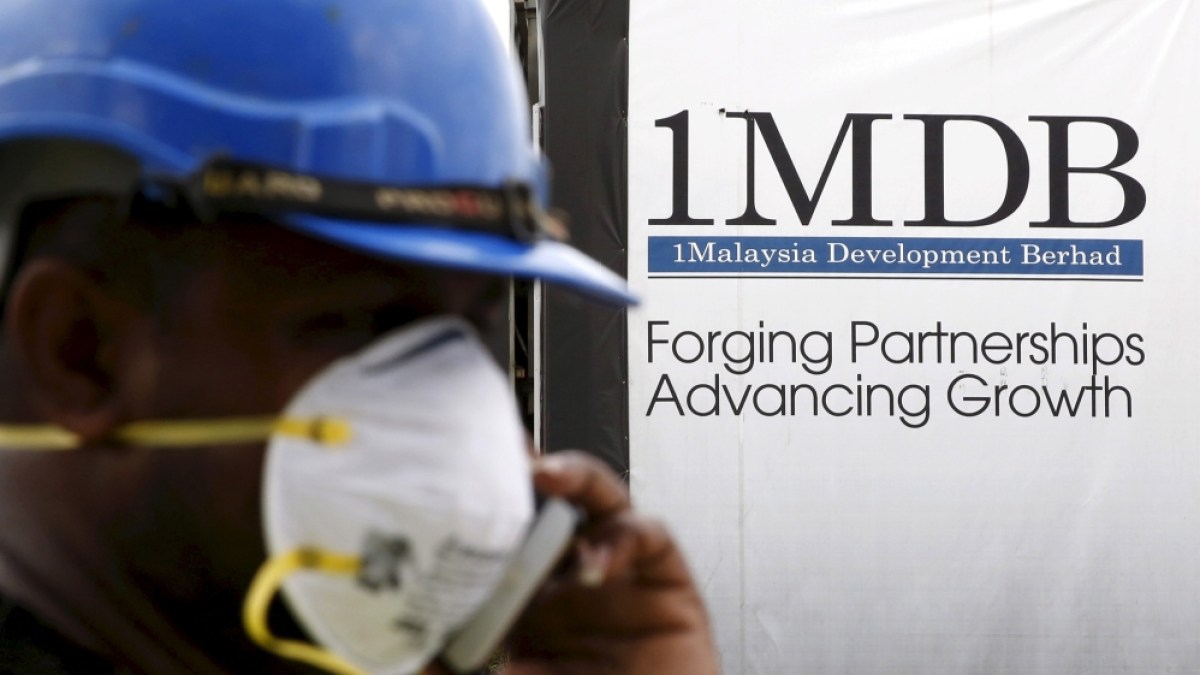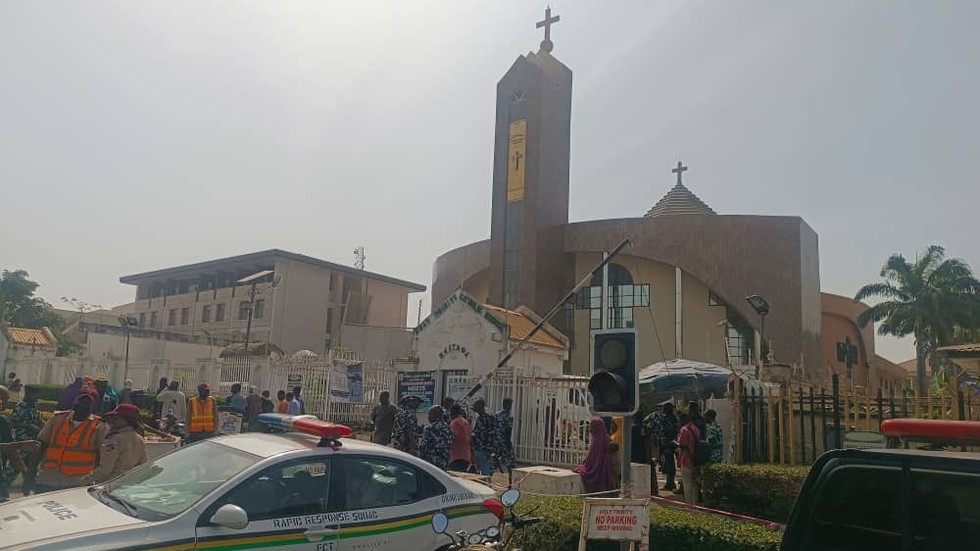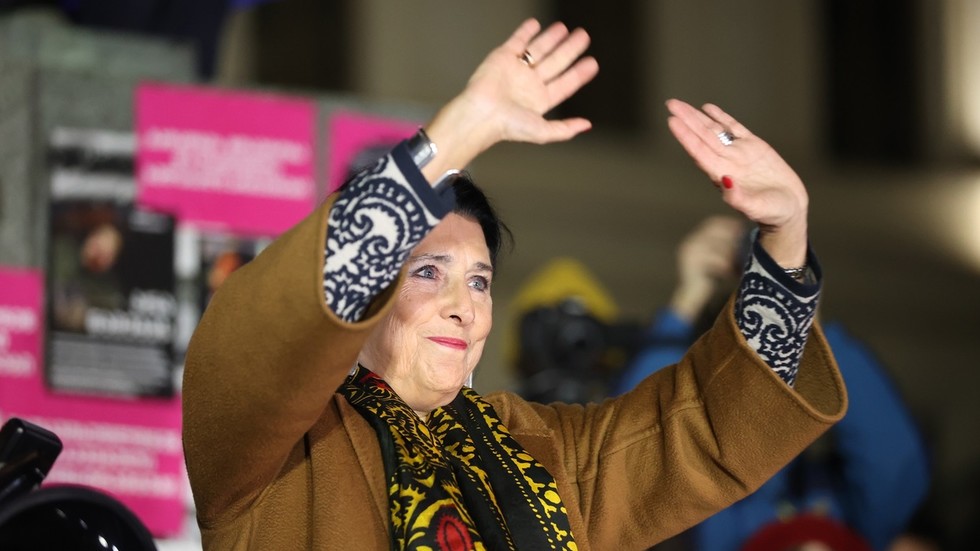Pulwama, Indian-administered Kashmir — For a month in 2020, 33-year-old Waheed-ur-Rehman Para was imprisoned in a dark, underground cell in the Indian capital, where he was beaten with rods, stripped naked, and hung upside down after the country’s premier investigation agency accused him of aiding anti-India rebels.
In the dim light, he would touch the names of other Kashmiris — scratched on the walls — who had been held in the New Delhi cell before him. At his lowest points, Para would close his eyes and recall the summer of 2018 when he stood in front of 3,000 people, next to Rajnath Singh, then India’s home minister, who hailed him as a youth icon of Indian democracy.
“I became suicidal and everything,” Para recalled, walking on a dusty road in Pulwama, his hometown.
The city is part of a district that shares its name and has long been a hotbed of anti-India rebellion in the south of Indian-administered Kashmir. But Para was — and remains — a popular pro-India leader, and is still grappling with the dramatic twists in fate that he has faced in recent years. After a month in the New Delhi cell, he was held in a jail in Srinagar, Kashmir’s biggest city, for nearly two years.
“My whole life felt like a lie,” he said.
“For a month, I did not know whether it was day or night. Being caged, I immediately felt connected to my Kashmiri roots and often returned to my childhood,” explained Para, tall, his voice feeble, hair visibly greyer than it was before his time in prison. “And [I] think, how did this happen.”
Released in May 2022 after what United Nations experts have described as two years of torture, Para though is still not willing to give up on Indian democracy as he goes door-to-door canvassing for votes in rebel-dominated areas that have traditionally boycotted elections. He does this while juggling multiple court hearings — some in cases relating to the charges he was arrested under, others to do with petitions seeking permission for him to travel outside Kashmir.
On September 18, as Kashmir votes in the first phase of regional polls being held after almost 10 years, Para’s name will be on the ballot. The youth president of the pro-India People’s Democratic Party (PDP) is contesting from Pulwama, his candidature the latest reaffirmation of his faith in India’s Constitution, at a time when trust between Kashmiris and the Indian government on the whole has fallen to new depths.
In August 2019, New Delhi unilaterally scrapped Kashmir’s special autonomy — which was guaranteed in the country’s Constitution — and stripped away its statehood. Para’s own odyssey with the Indian state completely “shook” his faith in democracy, he said.
But, he insists, a Kashmiri cannot “live a sadist’s life”. A Kashmiri who loves their homeland, he said, should “live for Kashmir – not die for it”. Para was referring to the alternative to democracy that many in Kashmir have also embraced over the years — the gun.
![Waheed Para interacting with voters in his constituency Pulwama, south Kashmir, during his election campaign. [Abrar Fayaz/Al Jazeera]](https://www.aljazeera.com/wp-content/uploads/2024/09/IMG_6121-1726562576.jpg?w=770&resize=770%2C513) Waheed-ur-Rehman Para interacts with people in his constituency, Pulwama, during his election campaign [Abrar Fayaz/Al Jazeera]
Waheed-ur-Rehman Para interacts with people in his constituency, Pulwama, during his election campaign [Abrar Fayaz/Al Jazeera]‘Avenge jail with votes’
For the last three decades, after an armed rebellion broke out against India’s rule in Kashmir, mainstream political participation was shunned by many Kashmiris, who heeded separatists’ calls to boycott polls.
In August 2019, New Delhi imposed a curfew, and a months-long communications blackout, before bifurcating the state of Jammu and Kashmir into two federally governed territories, thus stripping the region’s semi-autonomous status. The government of Prime Minister Narendra Modi also arrested dozens of opposition leaders, including Para and other pro-Indian Kashmiri leaders who swore by the Indian Constitution, keeping them under preventive detention without a trial.
He was moved from a makeshift prison to house detention in February 2020 before eventually being released. But in November later that year, soon after he filed a nomination for candidacy in a local district-level election, Para was arrested by the National Investigation Agency (NIA) and accused of involvement in “terrorism”, aiding armed fighters, and waging war against India. It was then that he endured his time in the underground cell.
Para won that district election but was not allowed to take an oath by Indian agencies. Right after a court in Srinagar granted him bail in January 2021, he was arrested again from the jail by another investigative agency in Kashmir in another case, again accused of “aiding and abetting terrorism”.
In May 2022, the Jammu and Kashmir High Court granted him bail, noting that the evidence against him was “too sketchy”.
On a sunny afternoon last week, when Al Jazeera met him, Para was leading his supporters in an election rally in Pulwama’s Beighpora village, known as the home of Riyaz Naikoo, the last popular commander of the pro-Pakistan rebel group Hizbul Mujahideen.
Para was surrounded by people waiting excitedly to shake hands with him. “Jail ka badla vote se [We will avenge jail with votes],” his supporters shouted, as a frail, old man wearing a white-skull cap tried to speak to Para.
“My son has been in jail under PSA,” he told Para, who leaned down to hear him amid loud slogans, using the acronym of Public Safety Act, a preventive detention law.
“Don’t worry Haji sahab, I’m here,” Para said, patting his shoulder. “Come to my home in the evening and we will see to it.”
These are pleas he hears the most, Para later told Al Jazeera – those of parents looking for help for their children jailed under India’s anti-terror and preventive detention laws, which rights groups describe as draconian.
“We want to convince New Delhi to engage with Kashmiri stakeholders,” he said. “There has to be a reconciliation movement in Kashmir and cases of our youth need to be dropped. We need a vast political process [for reconciliation].”
Among Para’s biggest tests is convincing Kashmiris that his party, the PDP, is the one that can drive such a process.
Large sections of Kashmiri society have long treated association with mainstream India with suspicion, because of the legitimacy that brings to India’s rule over the region. India and Pakistan have both contested the region for 77 years, each claiming all of it while controlling parts of it.
The political space for pro-India engagement shrank further after Modi’s Hindu majoritarian Bharatiya Janata Party, in power in New Delhi, revoked the region’s special status.
The PDP was an ally of the BJP in the last elected government of the region in 2014. Since then, the party has faced fierce criticism for allowing the BJP to enter into power in Kashmir.
In 2016, the PDP-BJP alliance quelled widespread street protests, sparked after the killing of a popular rebel commander, Burhan Wani. Nearly 100 civilians were killed, a significant number of them in south Kashmir. Hundreds of others were blinded by wounds from pellet guns.
However, that rejection of mainstream politics seems to be fading, said Para, pointing to the record-high voter turnout in the parliamentary election held between April and June 2024 and the victory of a jailed, anti-establishment independent candidate, Sheikh Abdul Rashid – also known as Engineer Rashid who defeated former Chief Minister Omar Abdullah.
Noor Ahmad Baba, a retired professor who headed the social sciences department at the University of Kashmir, said, “The turnout reflects people’s anger against the policies of the Indian government [including scrapping of the special status and further clampdown].”
“I think people are understanding the importance of democratic space,” Para said of the political shift. “It is very challenging and difficult to come out, or even talk, in Kashmir. People are realising that they can express themselves by voting also.”
![Waheed Para embraces an elderly, whose son has been detained under the Public Safety Act, promising him relief. (scene mentioned in the story) [Abrar Fayaz/Al Jazeera]](https://www.aljazeera.com/wp-content/uploads/2024/09/IMG_6124-1726562551.jpg?w=770&resize=770%2C513) Waheed Para embraces a man, whose son has been imprisoned under the Public Safety Act, promising him help [Abrar Fayaz/Al Jazeera]
Waheed Para embraces a man, whose son has been imprisoned under the Public Safety Act, promising him help [Abrar Fayaz/Al Jazeera]Personal is political
For Para, “everything is political in Kashmir — and politics is always personal”.
Growing up in Pulwama meant, he said, life was constantly uncertain. “We feared the militants and we feared the military,” he recalled. “I grew up as India, Pakistan, and China fought over who gets to rule us.” China also controls a small slice of the Kashmir region, to the north of the Karakoram mountain range — India claims that part of Kashmir.
The conflict over Kashmir reached Para’s home, in 2002, when his father, Ghulam Ahmad Para, was abducted by the Ikhwans, a pro-government militia, who demanded a ransom the Para family could not afford.
Para recalled that when no one heard the then 15-year-old teenager’s pleas for help, the then leader of the PDP, the late Mufti Mohammad Sayeed, lent him a helping hand, negotiating his father’s release. “I never looked back since then,” he said, his eyes welled up. “I wanted to be a part of this thing.”
Para was too young to vote at the time, but he joined the PDP’s campaign trail the following month as a polling agent as the region geared up for the assembly elections. Sayeed was elected chief minister, and he disbanded the Ikhwans.
The battle for 2024
Driving around Pulwama in his black SUV last week, with the car’s roof covered in a web of the PDP’s green-coloured flags, Para waved at people as they spotted him.
On the other side of the road, the cavalcade of a local BJP candidate passed. With a wink, he said: “The BJP enjoys the support of the government machinery but it is not like they enjoy popularity here.” The BJP has never won a seat in Kashmir, though it is a dominant force in the Jammu region that is also part of the combined administrative unit known as Jammu and Kashmir, which is voting in the elections.
In his hometown, Para is up against an old PDP hand, 72-year-old Mohammad Khalil Bandh. When Bandh won the seat in 2014, the last time regional elections took place, Para was helping promote that campaign. In 2019, Bandh switched to the National Conference, Kashmir’s biggest political party.
And there is another unlikely entrant to the fray, Talat Majeed, a former member of the Jamaat-e-Islami, a socioreligious organisation currently banned in India, that announced an end to its 37-year of self-imposed exile from polls – and returned to mainstream politics.
Speaking with Al Jazeera, Majeed said he sees Para as a “sincere candidate” and noted that their manifestos – promising an end to New Delhi’s bureaucratic overreach and a “jail-free Kashmir” for youth – overlap. But he said he was confident he was “the top candidate”.
![Waheed Para [Abrar Fayaz/Al Jazeera]](https://www.aljazeera.com/wp-content/uploads/2024/09/IMG_6127-1726562500.jpg?w=770&resize=770%2C513) Campaign buntings for Waheed Para’s PDP in his constituency in south Kashmir [Abrar Fayaz/Al Jazeera]
Campaign buntings for Waheed Para’s PDP in his constituency in south Kashmir [Abrar Fayaz/Al Jazeera]Give hope another chance
As Para canvasses for votes, drumming up support for the “politics of reconciliation”, he is yet to reconcile with his imprisonment.
When his father Ghulam was battling cancer in a hospital in New Delhi, Para was not allowed by investigative agencies to visit him. He is barred from leaving Kashmir because of the cases he faces. Ghulam passed away in January this year, aged 62. In February, his seven-year-old nephew Aleem also died while in a coma. Para was not allowed to travel to New Delhi to see the child before he died.
Para’s passport has been impounded since September 2023, which meant he could not attend a fellowship at Yale University’s International Leadership Centre.
“Now, I try to save other families when I couldn’t save my own family,” he said.
But Para insisted that he retains his belief in the “idea of India”. “I have a lot of clarity on the difference between ‘India’ and ‘BJP’ and that the country is in a transition,” he said. “India is about patriotism but the BJP is about Hindu nationalism, which means enforcing majoritarianism.”
Para’s thoughts drifted back to the time when, as a teenager, he was running around looking for help to secure his father’s release. If there was one thing he could tell that 15-year-old in hindsight, he said, it would be this: “Naummeedi nahi honi chahiye [Never give up hope].”
“We must give hope another chance.”

 3 months ago
92
3 months ago
92









